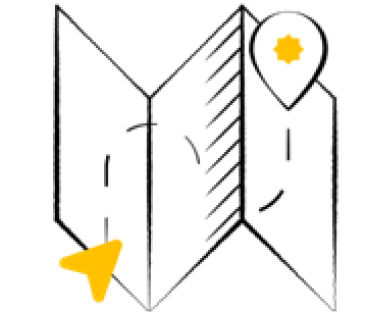Smart City Playbook

Tourism
Usecases
Rapid Deployable Accommodation System “Hayyak” Initiative


The Hayyak Initiative, meaning welcome in the local dialect, consists of rapid accommodation deployment systems that adopt a “Pick and Settle” concept. This system was only recently introduced to the construction industry and can be utilized to the benefit of Al Madinah city, leveraging large-scale 3D printing or the deployment of mobile accommodation systems such as tents or containers, to help accommodate the target of 30 million visitors by 2030. The Hayyak Initiative creates high quality and sustainable accommodation options that cater to seasonable demand at limited costs, without hindering ongoing urban development plans.
The city would then become a testbed for these different housing and accommodation systems to welcome the expected increasing number of visitors, whilst continuously developing and building more stable and permanent accommodation options such as hotels and furnished apartments.




















